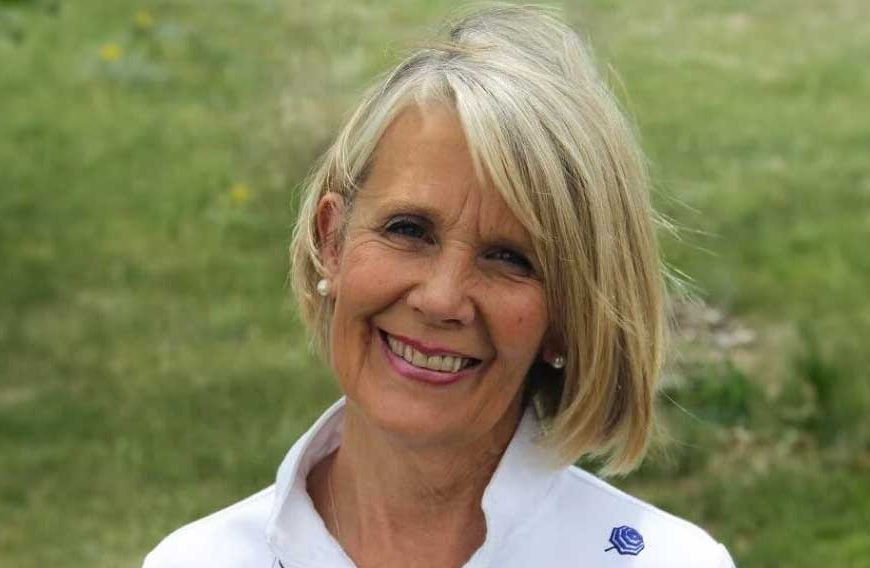Firstly, you should never be expected to say sorry for what someone else has done. Now that this simple and plain bit of truth is out of the way, let’s go further on this issue.
Why does our culture, and not only our culture, but the prevailing progressive culture across the West put so much emphasis on telling the descendants of colonial powers that they should be sorry for living in these abundant and wonderful lands?
Again and again, we are told how sorry we should be, how we should have a sorry day, and how if you don’t feel sorry you are a terrible person. Why does this happen? Because this is a direct inversion of what we should be doing, and our culture is currently overlorded by an evil ideology and what does evil do, it subverts.
Not only should we not be sorry about living in modern Australia, but we should be thankful, hopeful and watchful. We should be thankful that God gave us this land. We should be hopeful of the good things our nation could be going forward. And we should be watchful to make sure that we do not fall into sinful depravity, because we know that if we do, God may decide to punish us, as he has many other people throughout history. We learn these principles both from the Bible and from the history of our people, the Anglo-Saxons.
The Bible gives us a deep theology of dispossession. It teaches us that God owns all the land, everywhere, “The earth is the Lord’s and the fullness thereof, the world and those who dwell within” (Psalm 24:1). This is the first pillar of this theology.
No people on earth, whether pagan or Christian, homeowner or national sovereign, should view their land as anything more than a stewardship. God shows us very clearly in his own Scriptures how he takes lands from wicked peoples and gives them to new peoples.
You might be thinking immediately of the Israelites. But if you read Deuteronomy 2 to 3 you will see that God does this for other nations as well. He worked through the Edomites and Moabites to punish the former inhabitants of the lands he gave them to steward. But God also does this for his own people.
We read in Leviticus 25:23, “The land shall not be sold in perpetuity, for the land is mine. For you are strangers and sojourners with me. 24 And in all the country you possess, you shall allow a redemption of the land.” The land the Israelites inhabited was only theirs to steward, they were not the owners of it. Jesus reiterates this with several parables in the New Testament, and they were also warned that if they lived wickedly, God would take it from them (Deut. 28). The Israelites only had the land under the condition they lived as God’s people,
“You shall therefore keep the whole commandment that I command you today, that you may be strong, and go in and take possession of the land that you are going over to possess, 9 and that you may live long in the land that the Lord swore to your fathers to give to them and to their offspring, a land flowing with milk and honey.”
Deut. 11:8-9
At many points, the Bible emphasizes that those who inhabit the land of Israel were nothing more than stewards of God’s land. But this theology extends far beyond the Israelites. It applied also to the Canaanites and Amorites and other people whose land was given to the Hebrews. This teaching is emphasized from Moses to Jesus throughout the Bible.
These passages allow us to build a theology of dispossession. God owns the land, he grants usage of the land to a particular people or nation, and he expects those people to live up to a certain standard. If they do not, he will take the land from them and give it to someone else. This happens again and again in the Bible, and throughout history.
History also shows us that Christian nations had this same view in the past. A good example comes from Bede’s Ecclesiastical History of England. Bede gives the history of the English people. In fact, Bede, and through him the Church, give us our first complete and written understanding of the English people. He begins his history by referencing to the original people of the land, the Britons, who existed there before the Romans. His perspective, as an Anglo-Saxon, of the Britons, is scathing. Look what he observes,
“When however, the ravages of the enemy at length ceased, the island began to abound with such plenty of grain as had never been known in any age before; with plenty, luxury increased, and this was immediately attended with all sorts of crimes; in particular, cruelty, hatred of truth, and love of falsehood; insomuch, that if any one among them happened to be milder than the rest, and inclined to truth, all the rest abhorred and persecuted him, as if he had been the enemy of his country. Nor were the laity only guilty of these things, but even our Lord’s own flock, and his pastors also, addicting themselves to drunkenness, animosity, litigiousness, contention, envy, and other such like crimes, and casting off the light yoke of Christ. In the meantime, on a sudden, a severe plague fell upon that corrupt generation, which soon destroyed such numbers of them, that the living were scarcely sufficient to bury the dead: yet, those that survived, could not be withdrawn from the spiritual death, which their sins had incurred, either by the death of their friends, or the fear of their own. Whereupon, not long after, a more severe vengeance, for their horrid wickedness, fell upon the sinful nation. They consulted what was to be done, and where they should seek assistance to prevent or repel the cruel and frequent incursions of the northern nations; and they all agreed with their King Vortigern to call over to their aid, from the parts beyond the sea, the Saxon nation; which, as the event still more evidently showed, appears to have been done by the appointment of our Lord Himself, that evil might fall upon them for their wicked deeds.”
The Venerable Bede. The Ecclesiastical History of the English People (p. 20). Neeland Media LLC. Kindle Edition.
Bede here is describing how a wealthy and prosperous people, living at ease, became corrupted and fell into depravity and decadence. And because of this God judged them. But the more frightful punishment he brought was not the plague, but their dispossession from their own lands. God judged the Britons with the invaders that they had allowed to come in, even invited, and handed the land of the Britons to the Angles and the Saxons.
“In short, the fire kindled by the hands of these pagans proved God’s just revenge for the crimes of the people; not unlike that which, being once lighted by the Chaldeans, consumed the walls and city of Jerusalem. For the barbarous conquerors acting here in the same manner, or rather the just Judge ordaining that they should so act, they plundered all the neighbouring cities and country, spread the conflagration from the eastern to the western sea, without any opposition, and covered almost every part of the devoted island.”
Ibid, pg 21
The view of Bede was that the Britons had abandoned God, and therefore were dispossessed by the hand of God, through the Anglo-Saxons. This was the standard view of the Church throughout most of Christian history, and it is also the teaching of the Scriptures. But added to this is the idea that the new people in the land stand under the precise same warning. They too must hold to faithfulness in God, otherwise they too will be removed from sovereignty or even possession of their land. They cannot become proud and arrogant and think they are better than those they dispossessed because if they do, they will simply face the same fate.
This theology places us as stewards under the humble authority of God. It encourages us to live well in the land, but also warns us not to let prosperity corrupt us. Whereas a theology of “sorry” places us in a man-centric ideology, which says that people who were previously here are of the land, and anyone else who comes in is just an invader, always, and must feel guilty about this in perpetuity. This is not a biblical theology of land ownership, it is pagan. And much of the church has taken on this way of thinking and called it “advocating for justice.”
But justice for whom?
No one today perpetrated the dispossession. We are the descendants of those who came. And all Australians live now in a wonderful land and can prosper if they set their mind to it. In fact, many Australians are now the combined descendants of the Indigenous and the British settlers, we have been intertwined, and speaking of separate destinies now is no longer a simple issue.
We should not be sorry about living in the current Australia, but rather we should be exceedingly thankful. We live in a land blessed with much. We should be thankful that God has allowed us to live in such a country, and thankful for the great abounding plains he has afforded to all Australians. And thankful that we can have a bright future if we so choose.
But we should also be humble. We should not celebrate the fact that the previous stewards of this land have been dispossessed. We should be watchful, that we do not reject righteous living otherwise we too will be dispossessed. In fact, I would argue that this process has already begun. Australians are losing their land to an increasingly large supply of immigrants from very alien cultures that in many ways are opposed to our Anglo-Saxon way of life. And, at the same time, we see the rise of the concept of giving the land back to the descendants of the older inhabitants of this land and increasing moves to go further on this issue.
Nations that lose their sovereignty often regain it, after some time, especially when those who took them, start to degenerate in culture. And Australia is seriously degenerating in culture. In fact, I would argue that all the talk about sorry is a false spirituality that has been designed to cloud over how Australians should really think about themselves in this land: as stewards who are here at the pleasure of the King of kings, which, remember, our Constitution acknowledges.
None of this wipes away the pain and suffering that nations feel about losing their own lands and self-rule. It is understandable to feel deep pain about the situation. I have Slavic and English ancestors, and both those peoples were brutally conquered by others at points in their history, especially the Slavs – look up what happened to the Slavic world under the Mongols and various German peoples.
It is the way of this world for nations to rise and fall, and then, to rise again in diminished glory. But what a nation must never do, is forget who is our true God, the Lord God, and how we should live in His land. Because if we do forget that, God will discipline us. He has done it consistently throughout history, and I suspect Australians are facing this possibility today.
May we repent as a nation and turn to the Lord.


















